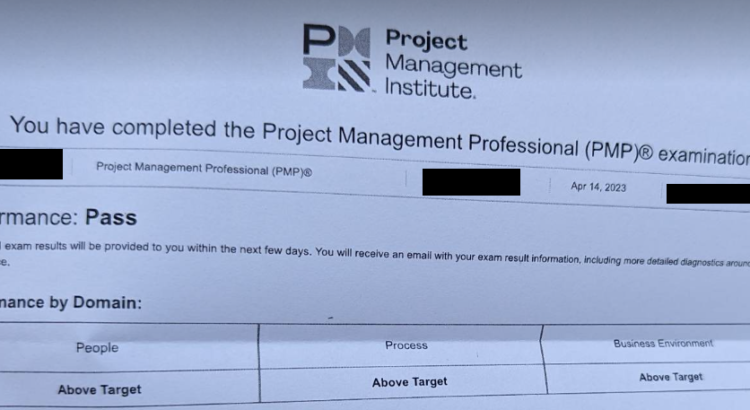Background
I am currently employed full-time, married, and have two children under the age of four. In preparation for the PMP exam, I dedicated approximately 3-4 hours per day on most days and less on weekends. I took four days off prior to the exam and studied for 6-8 hours per day. I have worked as a Project Manager for approximately nine years, with experience in an Agile environment for roughly five years. However, I have not worked in a traditional, strictly predictive environment.
Several key points should be considered regarding the exam:
- More than 50% of the exam is focused on Agile and Hybrid methodologies. If one lacks experience in this area, I suggest prioritizing the study of Agile/Hybrid methodologies. Many of the mock exams do not reflect this emphasis.
- The exam typically only contains one to two calculation questions, which are much easier than those found in most mock exams. I highly recommend that candidates skip all calculation questions during mock exams.
- Memorizing ITTOs and process charts is not necessary. The key is to understand how things work and to gain a “PMI mindset.”
- Many of the questions on the PMP exam involve scenarios in which “your team member did/said/wants...” and ask what the candidate, as a PM/Scrum Master/PO/Stakeholder, would do. It is important to focus on these types of questions during mock exams.
- The PMP exam is no longer a memorization-based exam. Candidates should not spend too much time on memorizing; instead, they should focus on understanding the questions they got wrong but do not know why.
- It is recommended that the exam be taken at a test center rather than at home. The exam is divided into three sections, with two breaks in between. Many candidates fail because they become fatigued during the exam, and their minds become clouded after each section. Taking the exam at a center allows candidates to walk around during breaks, drink water, and eat energy-releasing foods, such as dark chocolate, to help maintain alertness.
- Another major reason for failure is running out of time. For 180 questions in 230 minutes, candidates receive a break after every 60 questions. However, they cannot go back and review questions they answered before their last break. Therefore, it is essential to remain focused when reading questions for the first 120 questions so that candidates do not spend too much time reviewing questions. It is recommended to pace oneself at 1-1.5 minutes per question. Candidates can speed up when answering the last 60 questions, knowing that they will have some time to review.
- Prior to the exam, it is beneficial to do a mock exam at the same time as the actual exam and to continue doing so in the last few days leading up to the exam. On the day of the exam, candidates should drink the same amount of coffee as their body is accustomed to, avoid sugary foods, and consume foods that release energy slowly, such as whole grain bread or lean meat, to maintain energy levels throughout the exam.
Materials/Methods I used:
- I went through the entire Joseph Phillips Udemy PMP Prep Course at 2x speed, took notes, and collected all the quiz questions that I think are valuable in OneNote.
- I went through Andrew Ramdayal’s (AR) Udemy PMP Prep Course, but only the quizzes, matching games, and, most importantly, mindset videos. His mindset videos are what I think back to most during the real PMP exam. Make sure you understand every single point he mentioned in those mindset videos.
- David McLachlan’s Agile 200 videos on YouTube. These questions are on the easy side, but they are similar to the real exam, just with more confusing options. So try to read through all his explanations, and do not skip the explanation part just because you got the answers right.
- AR’s TIA Simulator (6 exams) + JP’s (1 exam). I scored around 73%-78% for all the exams, but I also skipped the calculation questions. Both of their exams focus too much on memorization.
- RMC Mock Exams and Chapter Quizzes. I made a mistake by signing up for their bootcamp, and maybe it’s the instructor, but it’s a complete waste of time and money. I highly doubt the instructor can still pass the PMP exam if she took the test tomorrow. Anyway, if you would like to challenge yourself, RMC questions are more difficult than AR and JP’s, with a lot of situational questions, which are similar to the real exam. I only scored 55%-70% on RMC questions, so don’t feel bad if you see bad scores.
Good luck to all, and please comment with any questions!
Also please see click here to download the full PDF notes.
